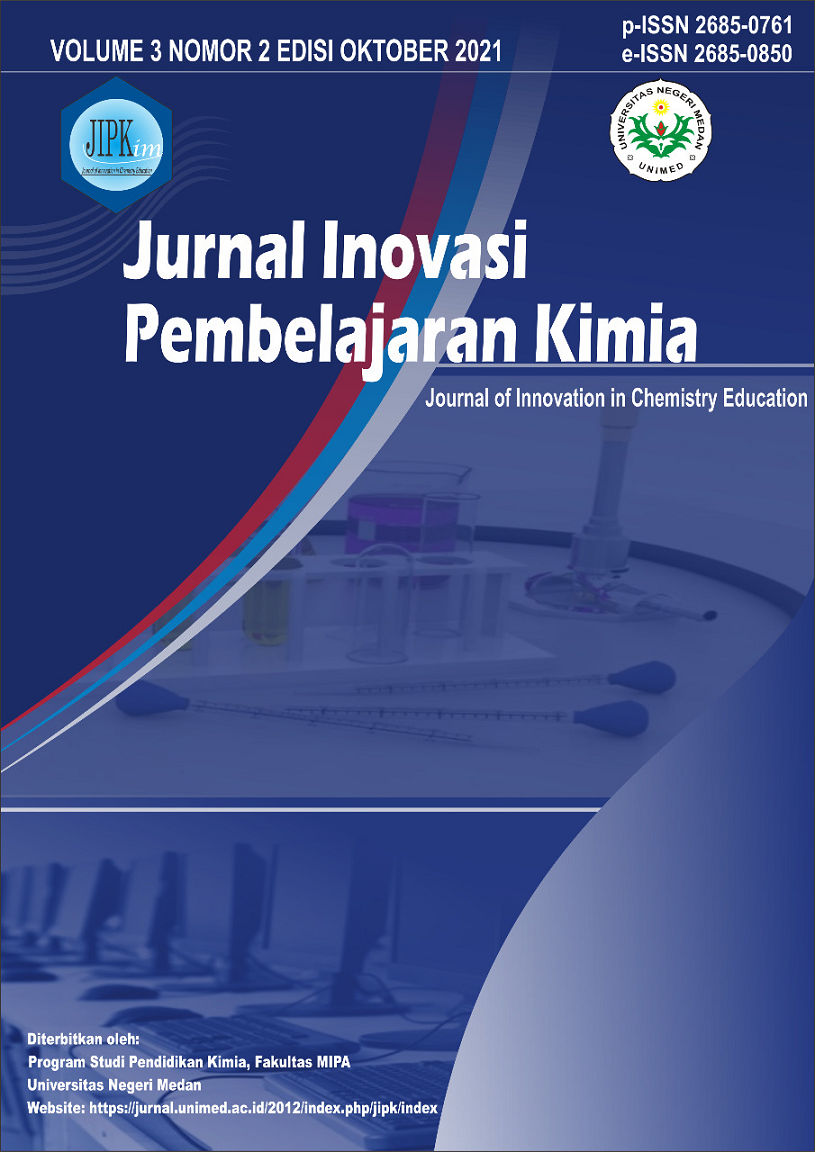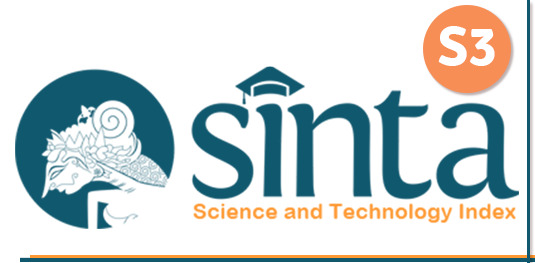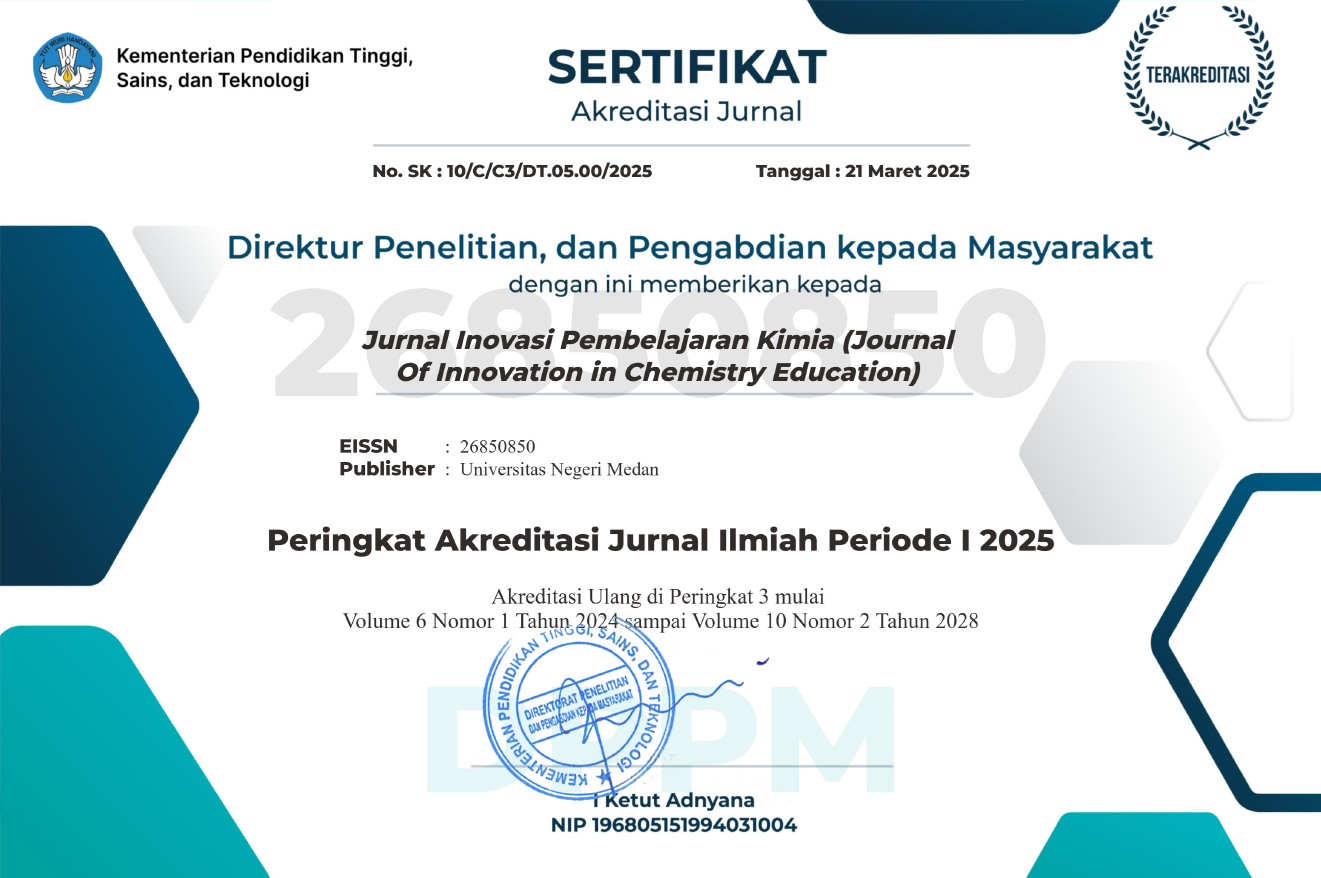Pengembangan Modul Elektronik Terintegrasi Problem Based Learning (PBL) Pada Materi Larutan Elektrolit dan Non Elektrolit
DOI:
https://doi.org/10.24114/jipk.v3i2.27076Keywords:
MediaAbstract
This study uses Research and Development (R&D) research methods, namely developing problem-based chemistry teaching materials on electrolyte and non-electrolyte solutions. Aims to determine the feasibility standard of chemistry teaching materials in accordance with the eligibility criteria for content, language, presentation, and graphics and see student responses to the developed teaching materials. The stages that were passed in the research started from syllabus analysis with 13 revised curriculum, book analysis, design and development of teaching materials, validation of expert teaching materials, and student responses to teaching materials resulting from the development so that problem-based teaching materials were composed of electrolyte and non-electrolyte solution materials that appropriate and in accordance with BSNP criteria.Based on the validation results of teaching materials using a modified BSNP questionnaire, in this questionnaire the aspects assessed include aspects of content feasibility, language feasibility aspects, presentation feasibility aspects, and graphic feasibility aspects. Based on the results of standardization of problem-based modules on electrolyte and nonelectrolyte solution materials by Unimed chemistry lecturers and Chemistry Teachers, overall the average content feasibility obtained a result of 3.48 with valid criteria and no need for revision, for language eligibility the results obtained 3.59 with criteria valid and does not need revision, for the feasibility of the presentation, the result is 3.73 with valid criteria and does not need revision, and for the feasibility of the graphic, the result is 3.60 with valid criteria and does not need revision. This means that the average result is 3.60. Problem-based Modules on electrolyte and nonelectrolyte solutions are valid and do not need to be revised. After the teaching materials are valid, it is recommended to conduct an assessment of students with the aim of seeing the percentage of students' satisfaction level with problem-based teaching materials developed based on aspects of appearance, material aspects, and benefits aspects. The results obtained from 30 respondents, namely the display aspect of 92.67%, the material aspect of 90.5%, and the benefit aspect of 88.17%. So that the average percentage level of student satisfaction with problem-based teaching materials that have been developed is 90.44%. This proves that students like problem-based teaching materials so that teaching materials can be used in chemistry learning as well as reading references for students.References
Aisyah, R S S., Solfarina., dan Yuliantika, U. (2021). Pengembangan E-Modul Berbasis Pemecahan Masalah Pada Materi Larutan Elektrolit dan Non Elektrolit (ELNOEL). Jurnal Kependidikan Kimia, 9(1) : 19-29.
Amirudin, A., dan Suryadi, A., (2016), Keragaman Media dan Metode Pembelajaran dalam Pembelajaran Sejarah Kurikulum 2013 pada Tiga SMA Negeri di Kabupaten Brebes Tahun Ajaran 2015/2016, Indonesian Journal of History Education 4: 7-13.
Ardiansyah, R., Corebima, A. D., dan Rohman, F., (2017), Pengembangan Bahan Ajar Mutasi Genetik Pada Matakuliah Genetika, Jurnal Pendidikan: Teori, Penelitian, dan Pengembangan, 2 (7): 927-933.
Arikunto, Suharsimi. (2013). Dasar-Dasar Evaluasi Pendidikan. Jakarta: Bumi Aksara.
Khotim, H. N., Nurhayati, S., Hadisaputro, S., (2015), Pengembangan Modul Kimia Berbasis Masalah Pada Materi Asam Basa, Jurnal Chemistry in Education, 4 (2): 63-69.
Singarimbun, E., Silaban, R., Suyanti, R. D., Jahro, I., dan Situmorang, M., (2015), Pengembangan Bahan Ajar Kimia Inovatif pada Pokok Bahasan Reduksi dan Oksidasi Berdasarkan Kurikulum 2013 Terintegrasi Pendidikan Karakter, Jurnal Pendidikan Kimia, 7 (2): 13-20.
Watoni, A. H., Kurniawati, D., dan Juniastri, M., (2016), KIMIA untuk SMA/MA Kelas XI, Yrama Widya, Bandung.
Zulvianda, H., Hanum, L., dan Nazar, M. (2020). Pengembangan E-Module Kimia SMA Pada Materi Larutan Elektrolit dan Non- Elektrolit. Jurnal Ilmiah Mahasiswa Pendidikan Kimia (JIMPK), 1(3) : 9-16.













